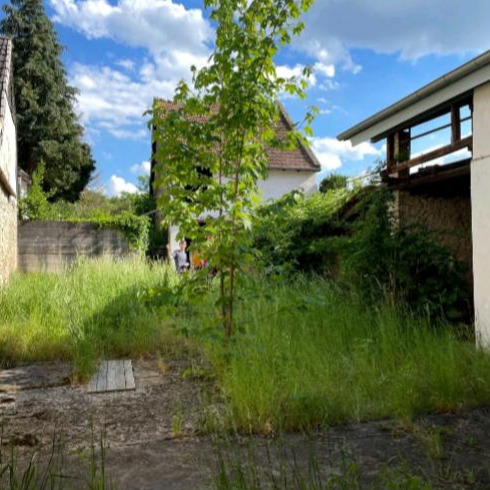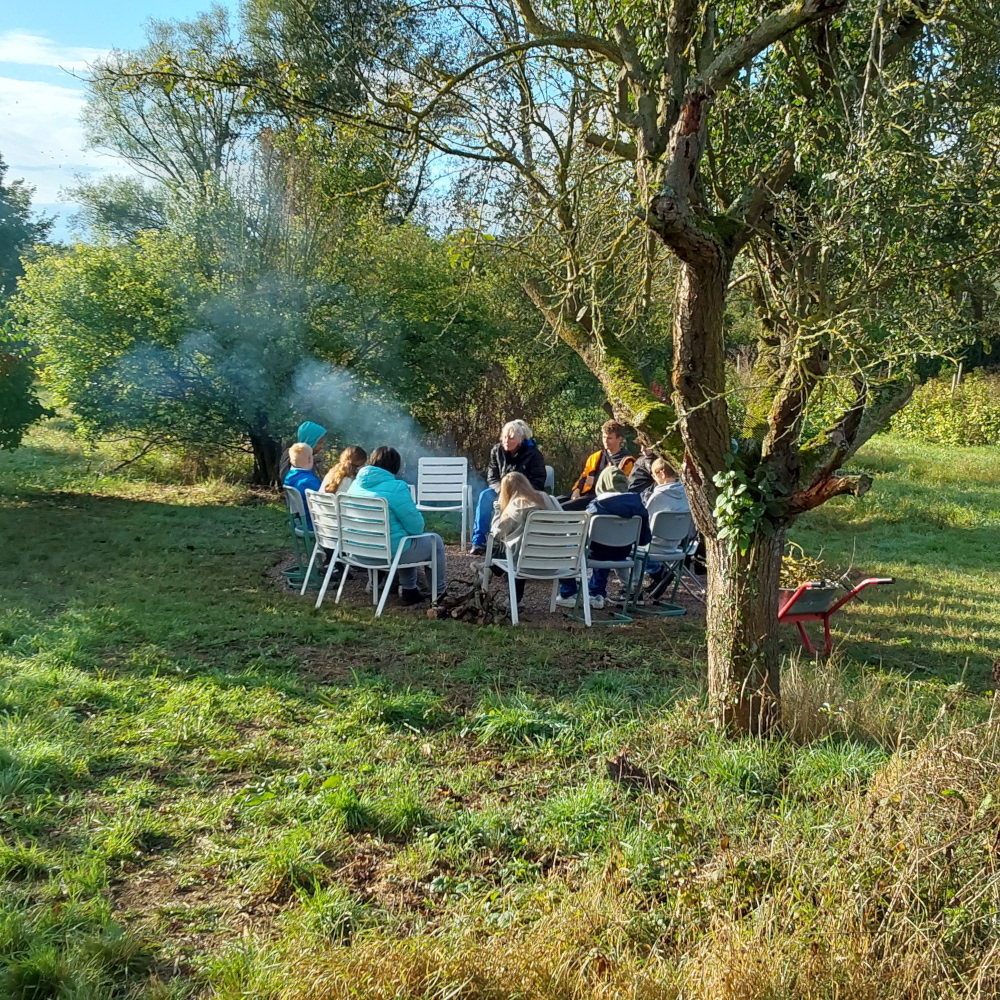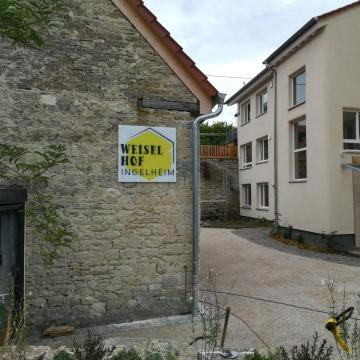![]() The mixed grades 7-10 are based on the pedagogical concept of the Erdkinderplan.
The mixed grades 7-10 are based on the pedagogical concept of the Erdkinderplan.
The prepared environment of the Erdkinderplan is a "Center of Study and Work", in which the following elements are ideally implemented as learning fields:
- A place for young people to live and spend the night, with the challenge of making a living together as a group for a certain period of time
- Rooms for "Self Expression" (studio, sports fields, music room)
- A farm "in the country" with animals
- A guest house with customer contact
- A store with accounting (a store and its finances?)
- A garden for growing fruit and vegetables
- A "machine museum" or a workshop in which the history of technology is conveyed.
- The pupils themselves as a "community", a mixed-age learning group that learns with and from each other
- Trained Montessori teachers who accompany the young people in their development, specialist teachers with methodical Montessori experience, as well as extracurricular experts with whom the young people work together.
All modules take place in the corresponding learning groups (Farm Class, Farm Class, Nature Class, Sirius). However, the implementation can vary depending on the prepared environment. The overnight stays can take place on a farm, for example, but can also be longer stays in school hostels or at partner schools. Of course, it makes sense for the community to feel a sense of responsibility for looking after its own animals. Developing a structure for the care of animals takes a lot of time, and requires adults to supervise it, at least in the beginning. After all, the animals also need to be looked after at the weekend. If this is not possible, you can cooperate with other facilities so that the young people can gain experience in animal care. You can learn how to deal with guests by renting out a guest room. You can also organize events, such as theater performances, and host guests in this context.
Our four "Adolescent Communities" offer young people the opportunity to get to know all areas of the Erdkinder plan over the four years in which they are part of the group. The individual classes share experts, exchange ideas, learn from each other's experiences and develop the Erdkinder concept at BMS together. We see ourselves as one Erdkinder team. Nevertheless, each community also has its own focus and special features. This depends on the places where they work, the pupils who learn there, and the learning guides who accompany them.
The curriculum that is implemented in these locations is structured as follows:
- Self Expression
- Self-expression in music, art and sport
- Psychic Development
- Personal development through moral, mathematical and linguistic education (in German and a foreign language)
- Preparation for Adult Life
- Preparation for life in society in the study areas "Earth and Nature", "Technical Development and Natural Sciences" and "History of Mankind"
The curricula of the Realschule Plus departments are of course fully implemented. The special feature of Montessori education is above all, that the "Erdkinderplan" always combines practical and academic learning through the prepared environment described previously, compared to the conventional "curriculum". Content is not only taught in a subject-specific context, but in an interdisciplinary and application-oriented way.
In addition, the focus is always on the child's individual learning level, which is taken into account in the age mix. This means that the child can be challenged well beyond the conventional curriculum content. Contrarily, partial performance disorders do not lead to exclusion from learning processes but are taken into account on an individual basis. Last but not least, a large amount of space is given to self-expression, which is crucial for the personal development of young people. Through this approach, many young people develop their personality and consolidated work and social behavior, which forms an excellent basis for work at secondary schools or in apprenticeships.
An essential tool for documentation and exchange between the school and extracurricular learning locations is the "digital class register" specially programmed for our school. This documentation system is unique in the world, and is structured according to the "Plan of Study and Work". This makes entry extremely simple and convenient, while ensuring an ideal level of transparency in the individual development of the pupils.
The pedagogy of the “Erdkinderplan” for the developmental stage of 12-18 year olds according to Maria Montessori forms the basis of the special teaching concept at our school. In her book “From Childhood to adolescence”, translated into German as “Von der Kindheit zur Jugend”, Maria Montessori outlines in the appendices “Appendix A and B” very precisely how she envisions the prepared environment of a place of learning for adolescents. “We have called these children the ‘Erdkinder’, because they are learning about civilization through its origin in agriculture.” (...) “The school where the children live, or rather their country homes, can give them the opportunity for social experience”.
The educational aim of the work with young people is to prepare the pupils for real life and to consistently incorporate practical content, or even to teach learning content based on practical experience - Montessori calls this “preparation for adult life”. This is why lessons take place at so-called “extracurricular places of learning” in addition to traditional lessons at school. These are places of learning in an agricultural context, integrated into a neighborly environment.



